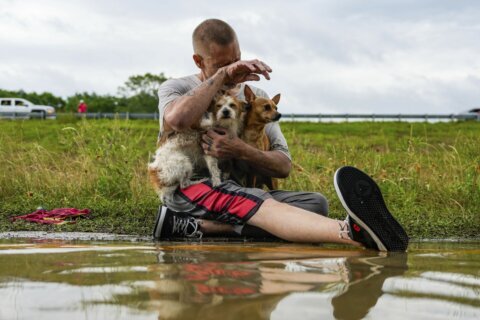ALBUQUERQUE, N.M. (AP) — The U.S. agency that oversees development and maintenance of the nation’s nuclear arsenal is moving ahead with plans to modernize production of key components for the weapons, but some watchdog groups and members of Congress are concerned about persistent delays and cost overruns.
The National Nuclear Security Administration released its annual plan on Monday, outlining the multibillion-dollar effort to manufacture plutonium pits, the spherical cores that trigger the explosion in thermonuclear weapons, at national laboratories in New Mexico and South Carolina.
The Savannah River Site in South Carolina faces a 2030 deadline to make 50 pits per year. Officials already have acknowledged they won’t meet that timeline, and this year’s report no longer includes a target date for Los Alamos National Laboratory, in New Mexico, to meet its goal of 30 pits per year.
Last year’s report had pegged 2026 as the year when manufacturing would be up and running at Los Alamos, which played a key role in the Manhattan Project during World War II and was the birthplace of the atomic bomb.
The top priority continues to be restarting production activities given the world’s deteriorating security environment, Jill Hruby, head of the nuclear agency, recently told a congressional subcommittee. She pointed to Russia’s development of new nuclear weapon delivery systems, China’s growing capabilities, and destabilization in North Korea and Iran.
The NNSA is undertaking what Hruby described as a once-in-a-several-generation opportunity to reform and modernize the nation’s nuclear enterprise. She acknowledged challenges when it comes to construction projects, supply chain delays, worker shortages and higher-than-expected inflation.
“We must adjust our cost estimates, delay starting additional large projects, and find innovative ways to successfully deliver,” she said.
The Biden administration is requesting $18.8 billion for weapons activities, a 10% increase over spending for the last fiscal year. Modernization of production accounts for $5.6 billion of the request.
Members of congressional subcommittees blasted Hruby and top defense officials during hearings in recent weeks about the delays and the increasing price tag. Hruby acknowledged that it would be another year before her agency would have a full cost estimate.
The NNSA fell short when it came to having a comprehensive schedule for the project and ran the risk of delays and increasing budgets because its plans for reestablishing plutonium pit production didn’t follow best practices, according to a January Government Accountability Office report.
Democratic U.S. Sen. Elizabeth Warren of Massachusetts suggested during a hearing this month that the NNSA was making up its plan as it goes along and that the timeline would be extended even further.
“It is not unreasonable for Congress to ask you to tell us how long a project is going to take and how much it’s going to cost in exchange for our forking over billions of dollars. And I suggest that’s what NNSA be required to do before we give them another penny,” Warren told Hruby.
U.S. Sens. Martin Heinrich and Ben Ray Luján, both Democrats from New Mexico, have been supportive of the work at Los Alamos. Lucrative government spending on weapons work and hundreds of jobs will result from restarting production. Neither senator responded to emailed questions about whether they were concerned about the slipping schedules.
The NNSA also did not immediately respond to an email about the schedule for work at Los Alamos.
Greg Mello with the Los Alamos Study Group, which advocates for nuclear disarmament, said ballooning schedules and budgets are hallmarks of incipient failure even in normal times and that the U.S. is facing economic turbulence that will only exacerbate the agency’s problems.
“This is the other reason why NNSA has refused to provide a schedule and budget for pit production. It’s too terrifying,” he said.
Copyright © 2024 The Associated Press. All rights reserved. This material may not be published, broadcast, written or redistributed.







